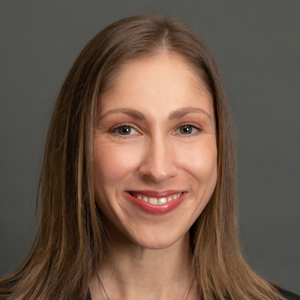In the Words of Direct Care Workers: Michelle Godwin
As part of our new report on the direct care workforce, we’ve been speaking with direct care workers from around the country, drawing on their wisdom and experience to help inform the future of this sector. This interview is with Michelle Godwin, a Certified Nursing Assistant at Villas at Killearn Lakes in Tallahassee, Florida. She has been a direct care worker for 15 years.
 ON WHY SHE DECIDED TO BECOME A CNA
ON WHY SHE DECIDED TO BECOME A CNA
“Ever since I was teenager, I’ve always loved to be around older adults. I would befriend elderly neighbors, sit with them, and help them with anything they need. We would even sit down and eat dinner together. After I graduated high school, I went to college for a little bit, but then decided to become a CNA. As soon as I passed my certification, I went right into working in this field. That was more than 20 years ago, and I’ve been working in it ever since—in nursing homes, hospitals, mental health facilities, home health care, and in a ’small house‘ neighborhood setting. I just love helping people and am very compassionate for people who can’t always help themselves. I also know that one day I will get older and will want to be treated well and have the best care too.”
ON HER RELATIONSHIP WITH HER CLIENTS
“We are very close, and that’s what I love most about my job. They see my smiling face, and they can tell through my character and sense of humor that I really care about them. They know that I’m here to do anything to make them feel better. I just enjoy them, and I can tell they enjoy me, too, because we make each other laugh all of the time.”
ON WHAT SHE FINDS MOST CHALLENGING IN HER ROLE
“If you last in this work for more than a year or two, it’s because you’re not in it for the paycheck—you’re in it because you really care. I love what I do, yet I still have bills and responsibilities, and sometimes I don’t feel we get paid our worth. That’s why I think there is so much turnover in this field. I’ve worked in nursing homes and other places before where we were really short on help. In some of these places, I was assigned up to 20 residents, and there was no possible way to physically give each of them the care they needed. We are battling to do whatever needs to get done because we care. But if they were paying us more, that high turnover might stop and they’d be more likely to keep staff.”
IF SHE COULD CHANGE ANYTHING ABOUT THE FIELD
“If I could make a change, it would be for this field to show more appreciation for what we do because we are the main backbone of this work. We’re the most hands-on with clients and spend more time with them than anyone else. Some days I completely forget to even take a break because the work is constant, and I want to make sure residents get enough time engaging with me. It can get overwhelming. This can also be back-breaking work. It is very tiresome and can really take a toll on your body. We are lifting residents out of bed, helping them up if they need support walking, running around to get this test and that test done, and making sure they have everything else they need. Sometimes, I go home and my body is still in pain. But I do it over and over again because I really do care.”






